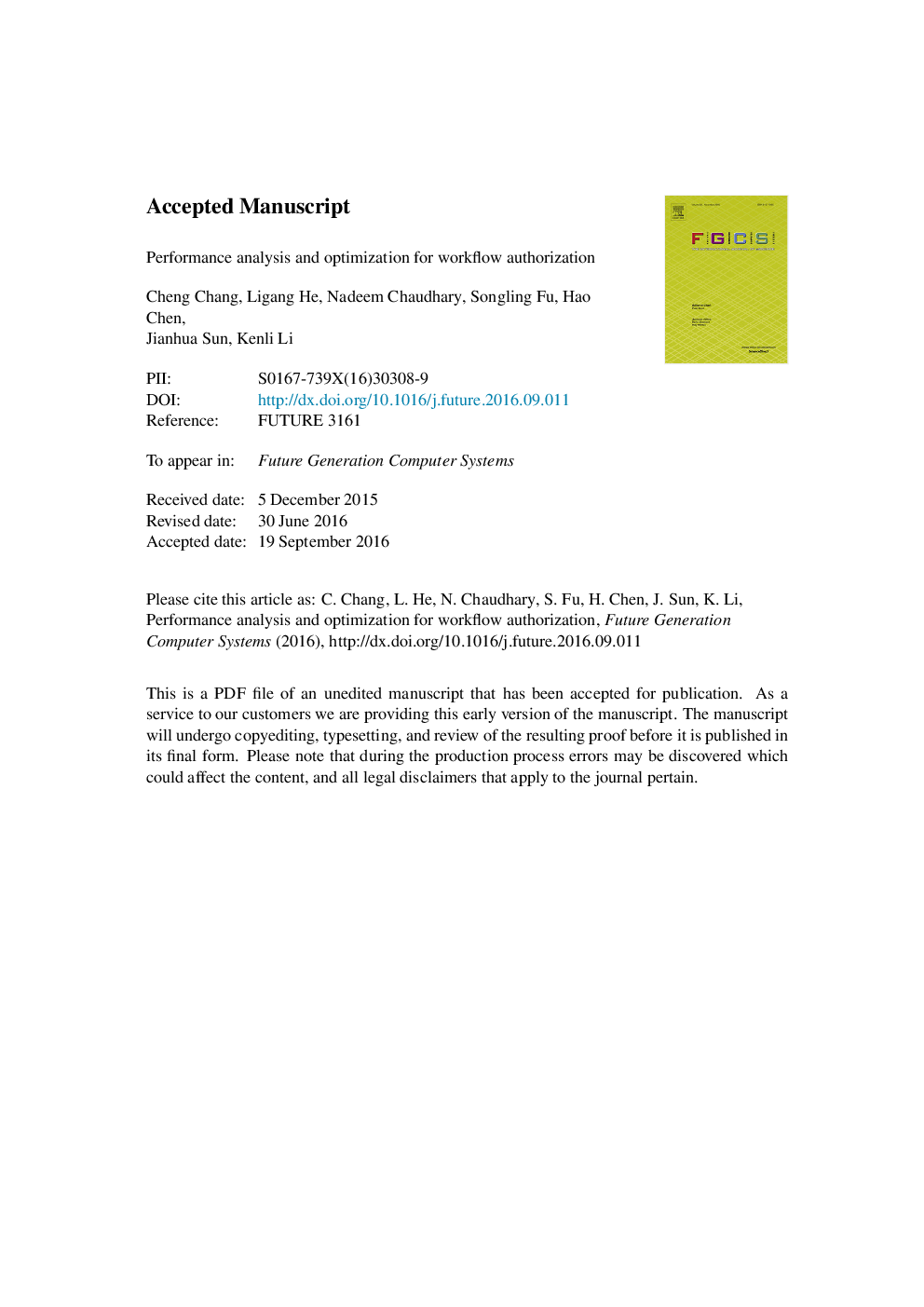| Article ID | Journal | Published Year | Pages | File Type |
|---|---|---|---|---|
| 4950541 | Future Generation Computer Systems | 2017 | 19 Pages |
Abstract
Many workflow management systems have been developed to enhance the performance of workflow executions. The authorization policies deployed in the system may restrict the task executions. The common authorization constraints include role constraints, Separation of Duty (SoD), Binding of Duty (BoD) and temporal constraints. This paper presents the methods to check the feasibility of these constraints, and also determines the time durations when the temporal constraints will not impose negative impact on performance. Further, this paper presents an optimal authorization method, which is optimal in the sense that it can minimize a workflow's delay caused by the temporal constraints. The authorization analysis methods are also extended to analyze the stochastic workflows, in which the tasks' execution times are not known exactly, but follow certain probability distributions. Simulation experiments have been conducted to verify the effectiveness of the proposed authorization methods. The experimental results show that comparing with the intuitive authorization method, the optimal authorization method can reduce the delay caused by the authorization constraints and consequently reduce the workflows' response time.
Related Topics
Physical Sciences and Engineering
Computer Science
Computational Theory and Mathematics
Authors
Cheng Chang, Ligang He, Nadeem Chaudhary, Songling Fu, Hao Chen, Jianhua Sun, Kenli Li, Zhangjie Fu, Ming-Liang Xu,
